Intel's 5 Biggest Announcements At The Data-Centric Innovation Summit
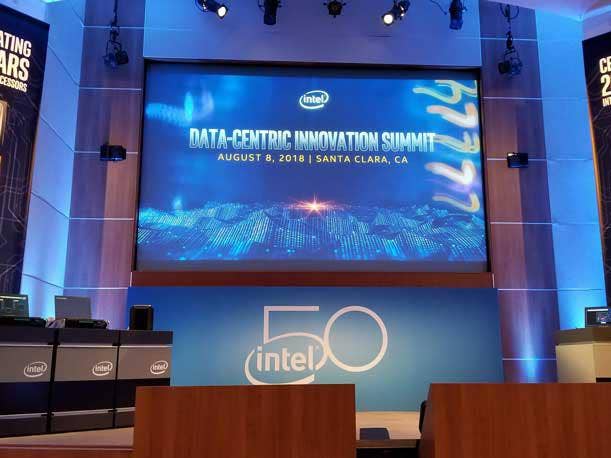
Intel's Bold, Broad Data Center Vision
Intel delivered a bold and broad vision for its data-centric strategy on Wednesday, when the semiconductor giant made several announcements for new products, capabilities and opportunities.
The Santa Clara, Calif.-based company is seeing double-digit growth in its data-centric businesses, which includes data center, memory and Internet of Things, among other groups. In the second quarter this year, those businesses grew 27 percent year-over-year to $7.9 billion, bringing them closer to overtaking Intel's PC business as the largest sales driver.
What follows is a look at the company's five biggest announcements at the Intel Data-Centric Innovation Summit in Santa Clara.
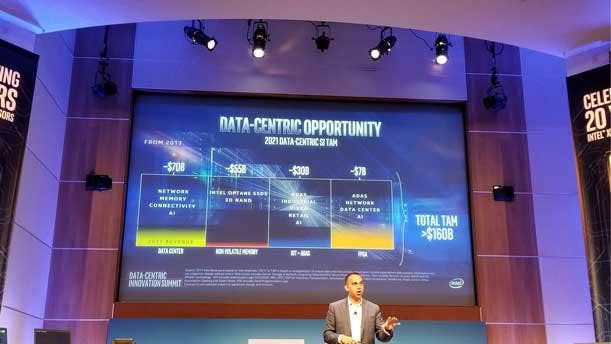
Data-Centric Opportunity Is $200B
In his opening keynote, Navin Shenoy, Intel's data center head, announced that the company has upgraded the total addressable market for data-centric businesses to $200 billion by 2022 from a $160 billion estimate that was made last year. The largest opportunity within that figure is the data center, which is estimated to become a $90 billion market in 2022 between solutions for network, memory, connectivity and AI. The second largest opportunity is non-volatile memory ($75 billion), followed by Internet of Things and advanced driver assistance systems ($33 billion) and field-programmable gate arrays, the company's reprogrammable chips ($8 billion).
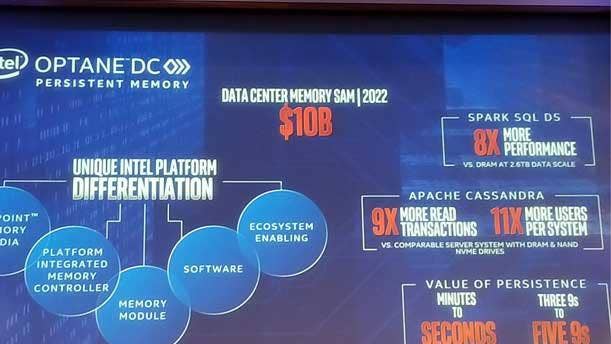
Optane DC Persistent Memory Is Gamechanger
Intel has been teasing Optane memory for the data center for most of this year, but the product has now started to ship to select customers, the company revealed. Shenoy called Intel's Optane DC Persistent Memory a gamechanger that can bring about "workloads that weren't possible before" and solve "bottlenecks in the DRAM tier" of memory. The company is promising large performance gains with Optane Persistent Memory. For example, the company said it can improve Spark SQL DS performance by a factor of seven. It can also accelerate server start time from minutes to seconds and improve availability from three nines to five nines. The new memory type is being supported in the company's upcoming Cascade Lake Xeon chip, which comes out later this year.
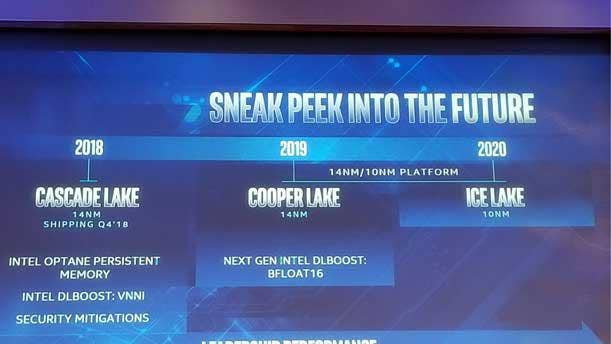
Next-Gen 10NM Server Chip Out 2020
The company said its next-generation, 10-nanometer server processors will come out in 2020. But while that means the product -- code-named Ice Lake -- will come out later than AMD's comparable 7nm server chip, which is due out next year, Intel maintained that the company will remain competitive with products coming out in 2019 that are based on its current 14nm process. To prepare customers and partners for Ice Lake, Shenoy said the company's 14nm Cooper Lake server chip coming out next year will share a common hardware platform. Cooper Lake is expected to bring significant performance gains, as well as new I/O features and Intel's new Deep Learning Boost capabilities. Jim Keller, AMD's former lead chip architect who joined Intel earlier this year, said 10nm processors are his main focus now. "The technology is so good – getting it out is really complicated and hard," he said.
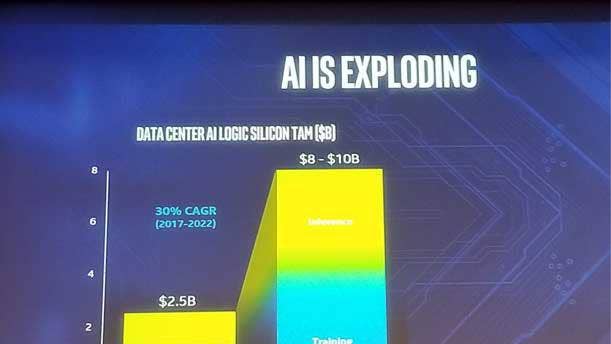
AI Revenue For Xeon Is Now $1B
Intel revealed that artificial intelligence applications drove $1 billion in Xeon server processors sales last year, which the company used as a prime indicator that general-purpose CPUs have a big role to play in AI. During his talk, Naveen Rao, Intel's AI computing chief, said almost all inference computing is done on Xeon CPUs today. "General-purpose computing has a scale that specialized chips can't achieve," he said. The company said AI is one of the main drivers behind Intel's data center growth.
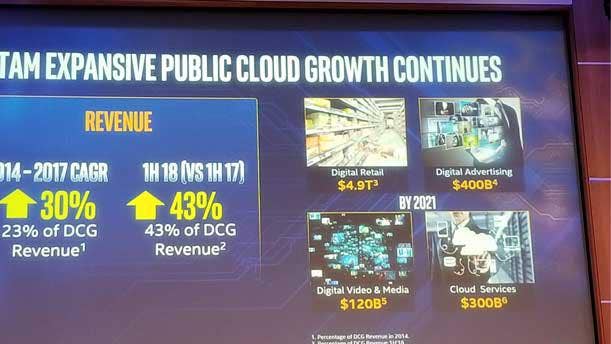
Cloud Leads Data Center Growth
Customers using Intel products for cloud deployments is the number one growth leader for the company's Data Center Group, the company said. Shenoy said sales from cloud customers grew 41 percent year-over-year in the second quarter. That brought cloud's total share of Data Center Group revenue to 43 percent for the first half of 2018, according to Raejeanne Skillern, the group's cloud chief. More than 50 percent of CPUs sold to cloud customers were customized for their specific needs.